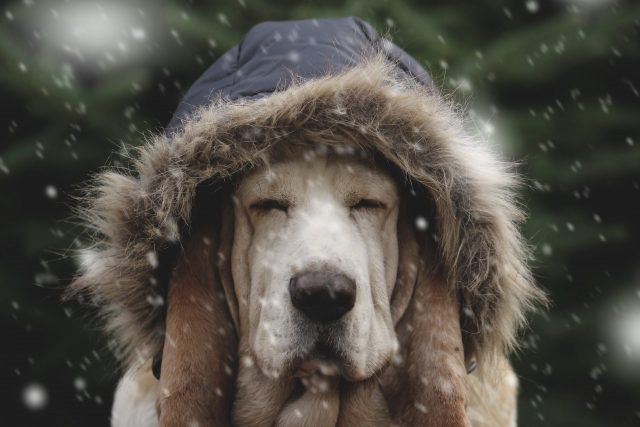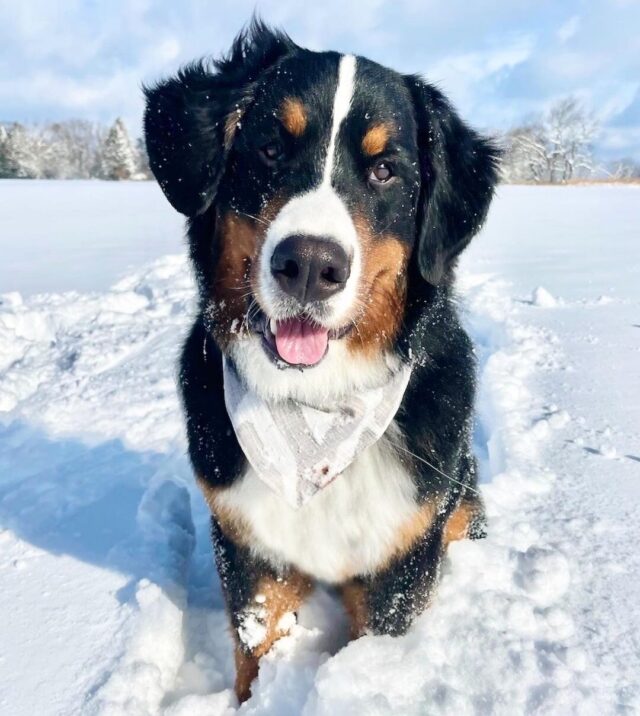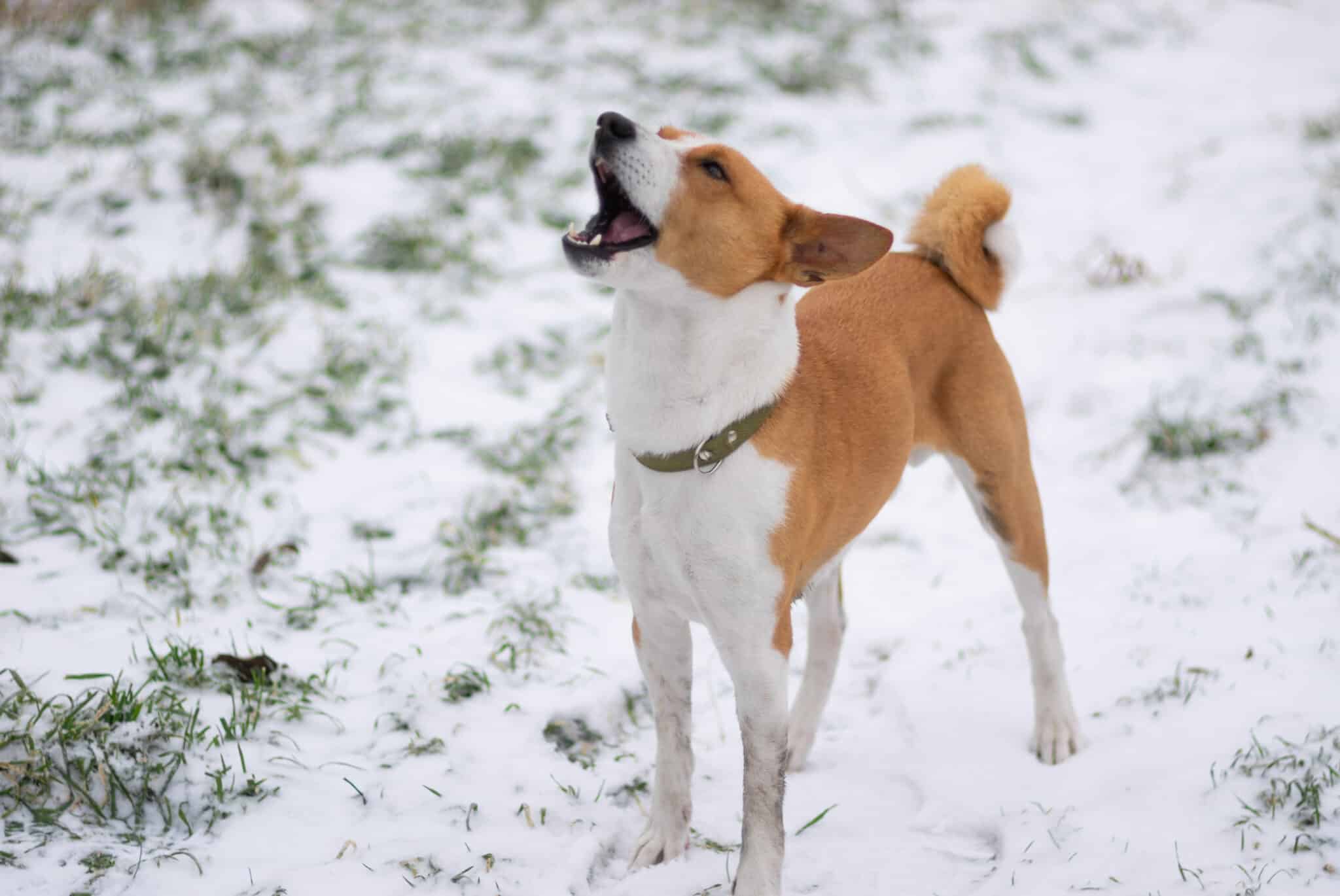As winter approaches, it’s important to consider the unique needs of our senior dogs. Just like humans, older dogs can be more vulnerable to the cold, and the change in weather can exacerbate certain health issues. Whether your dog is experiencing stiff joints, dry skin, or simply struggling to stay warm, there are steps you can take to ensure they stay comfortable and healthy during the colder months. Here are five ways to help your senior dog this winter.

Tips to Keep Your Senior Dog Safe This Winter
1. Keep Them Warm and Cozy
One of the most important things you can do for your senior dog during the winter is to keep them warm. Older dogs are often more sensitive to temperature changes due to a slower metabolism, reduced muscle mass, or underlying health conditions like arthritis.
Invest in a Quality Dog Sweater or Coat
A well-fitted, insulated dog sweater or coat is a great way to help your dog retain body heat during walks or even around the house if you keep the temperature low. Look for clothing that covers your dog’s chest and abdomen, as these areas are critical for heat retention.
Provide a Warm Sleeping Area
Ensure your dog has a warm, comfortable place to sleep. Elevated beds can help keep them off cold floors, while orthopedic beds provide extra support for achy joints. Consider placing the bed in a draft-free area and adding extra blankets for warmth.
2. Maintain Their Joint Health
Cold weather can cause joints to become stiff and painful, especially in senior dogs who may already be dealing with arthritis or other joint-related issues. Keeping your dog’s joints healthy is crucial to their overall well-being.
Provide Joint Supplements
Hip & Joint Supplements like glucosamine, chondroitin, and omega-3 fatty acids can support joint health by reducing inflammation and improving mobility. These can be given in the form of chews, capsules, or even added to their food.
Massage and Gentle Exercise
Regular massage can help stimulate blood flow to stiff joints, offering relief from discomfort. Additionally, gentle exercise like short, controlled walks or indoor play can keep your dog active without overexerting them. Swimming is another excellent low-impact exercise option, though this may be more difficult to access in the winter.

3. Protect Their Paws
Winter can be harsh on your dog’s paws, especially if they’re walking on ice, snow, or salt-treated roads. Cracked or irritated paw pads can be painful and lead to infections, so it’s important to take extra care of your dog’s feet during the colder months.
Use Dog Booties
Dog booties provide a barrier between your dog’s paws and the cold ground, offering protection from ice, snow, and harmful chemicals like de-icing salts. If your dog isn’t used to wearing booties, introduce them gradually and make sure they’re a comfortable fit.
Apply Paw Balm
Before and after walks, apply a protective paw balm to help prevent cracking and irritation. Choose a balm that’s made from natural, non-toxic ingredients, so it’s safe if your dog licks their paws.
Check Their Paws Regularly
Inspect your dog’s paws after each walk to remove any snow, ice, or debris that might be stuck between their toes. This is also a good time to check for signs of irritation or injury.
Check out The 21 Best Winter Jackets For Dogs & Top Cold Weather Gear
4. Adjust Their Diet and Hydration
Just like in humans, a senior dog’s dietary needs can change with age, and winter can influence those needs further. Keeping your dog properly nourished and hydrated is key to maintaining their health through the colder months.
Consider a High-Quality Senior Dog Food
As dogs age, they may require fewer calories but more nutrients to support their aging bodies. Consider switching to a high-quality senior dog food that’s rich in essential nutrients like antioxidants, vitamins, and minerals, which can support their immune system and overall health.
Monitor Their Weight
It’s common for dogs to be less active in winter, leading to weight gain. However, excess weight can put additional stress on their joints and exacerbate existing health conditions. Keep an eye on their weight and adjust their food intake if necessary.
Ensure Adequate Hydration
Dogs can become dehydrated in winter due to the dry indoor air and reduced water consumption. Make sure your dog has access to fresh water at all times, and consider adding wet food to their diet to increase their fluid intake.

5. Schedule Regular Vet Visits
Winter is a good time to schedule a check-up with your vet, especially if your senior dog hasn’t had one recently. Regular veterinary care is crucial in detecting and managing age-related health issues before they become serious problems.
Discuss Winter-Specific Concerns
During the vet visit, bring up any concerns you have about your dog’s health in relation to the colder weather, such as mobility issues, changes in appetite, or skin conditions. Your vet can provide personalized advice and possibly recommend adjustments to your dog’s care routine for winter.
Stay Up-to-Date on Vaccinations and Parasite Prevention
Even in winter, it’s important to keep up with your dog’s vaccinations and parasite prevention. Some parasites, like fleas, can survive indoors, and dogs can still be exposed to diseases like canine influenza during winter.

Frequently Asked Questions
1. How can I tell if my senior dog is too cold?
Signs that your dog is too cold include shivering, reluctance to go outside, and seeking warmth, such as curling up in blankets or sitting near heaters. If your dog seems uncomfortable, it’s important to take steps to warm them up, such as using a dog sweater or coat and providing a warm bed.
2. Should I walk my senior dog less in winter?
It depends on your dog’s health and tolerance to cold. Short, frequent walks may be better than one long walk to prevent overexertion and cold exposure. Pay attention to your dog’s behavior and adjust their exercise routine as needed to ensure they’re comfortable and safe.
3. Are there any indoor activities I can do with my senior dog?
Absolutely! Indoor activities like gentle play with toys, training sessions, or even simple puzzle games can keep your dog mentally and physically stimulated without having to go outside in the cold.
4. How can I prevent my senior dog from slipping on ice?
Using dog booties with good traction can help prevent slips. You can also avoid icy areas during walks and stick to shoveled paths. At home, placing non-slip mats on hard floors can reduce the risk of slipping indoors.
5. Should I change my senior dog’s food in winter?
You may not need to change their food, but it’s a good idea to review their diet to ensure they’re getting the right nutrients. Consider a senior dog food that supports joint health and overall wellness. Consult with your vet if you’re unsure about making any dietary changes.
Snuggle Up and Savor the Season with Your Senior Pup
Winter can be a challenging time for senior dogs, but with a little extra care and attention, you can help them stay comfortable, healthy, and happy. By keeping them warm, supporting their joint health, protecting their paws, adjusting their diet, and staying on top of veterinary care, you can ensure your senior dog enjoys the winter months just as much as the rest of the year. Remember, every dog is different, so always pay attention to your dog’s individual needs and adjust your care routine accordingly. Your love and care will make all the difference in helping your senior dog thrive this winter.

 Toledo, United States.
Toledo, United States.